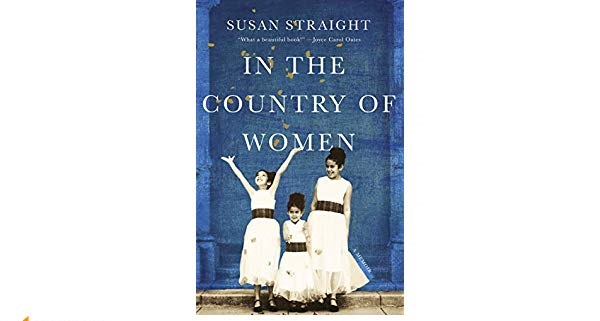Seven books to read this August
Tope Folarin, A Particular Kind of Black Man Folarin, winner of the Caine Prize for African Writing, addresses the slipperiness of identity in his nuanced first novel. Tunde grows up in all-white communities in Utah, the son of a Nigerian-born couple in search of the American dream. When he is seven, his abusive mother, whose […]

Tope Folarin, A Particular Kind of Black Man
Folarin, winner of the Caine Prize for African Writing, addresses the slipperiness of identity in his nuanced first novel. Tunde grows up in all-white communities in Utah, the son of a Nigerian-born couple in search of the American dream. When he is seven, his abusive mother, whose mental illness has deepened, returns to Nigeria. Tunde begins a lifelong search for belonging, including a struggle to connect with his Nigerian-born stepmother and stepbrothers and with fellow students at university. Folarin builds upon realistic childhood scenes in later experimental sections, when Tunde realises he’s followed his father’s lead, becoming a black man who “had been accepted by white people” and begins to wonder who he really is. Searching for the answer, Tunde descends into intriguing “double memories.”
Sarah M Broom, The Yellow House
Broom’s mother, Ivory Mae, purchased the yellow house in east New Orleans in 1961 with the life insurance money paid following the death of her husband Webb, killed at 18 while stationed at a Texan military post. She married Simon Broom, who worked at Nasa and was 19 years older, and the two raised their blended family there. Broom, the youngest of Ivory and Simon’s 12 children, delves into her family roots, and revisits her coming of age without Simon, who died of a brain aneurysm when she was six months old. She details the dramatic moments when Hurricane Katrina scattered the family, the single missed city notice that erased their home in 2006, and the legal settlement 11 years later. In this vivid memoir, she honours what’s left: all the stories.
Susan Straight, In the Country of Women
Straight met Dwayne Sims when she was 14. After they married three years later, the two travelled to Amherst, Massachusetts, where she studied writing with James Baldwin. Now, distilling stories from generations of her extended family into lyrical gems, Straight uses her novelistic skills to craft a saga that highlights the odysseys of courageous women in their past. She writes of her mother, who grew up in the Swiss Alps, her father’s hard-scrabble Colorado upbringing, and, on her husband’s side, of Fine Ely Rawlings Kemp, orphaned, with “a core of fury and independence and self-preservation, and her mother-in-law Alberta, who taught her the meaning of family. Her three daughters, she notes, “carry in their blood at least three continents. We are not about borders. We are about love and survival.”
Amy Waldman, A Door in the Earth
In her illuminating second novel, Waldman, who reported from Afghanistan after 9/11, unpeels layers of cultural conditioning to explore the American use of “kind power”. Her Kabul-born, US-raised narrator, Parveen is a recent anthropology graduate of UC Berkeley. She visits an Afghan village and finds life there to be different from – and more complicated than – the story she had been fed in the US. During her journey, Parveen discovers that a US military team has been sent to build a new highway to the remote village, “a backdrop against which Americans played out their fantasies of benevolence or self-transformation or, more recently, control.”
Rick Moody, The Long Accomplishment
Spot-on sentences pepper this memoir by award-winning novelist Moody, who begins by disposing quickly of his first marriage: “Divorce was like agreeing to have all your skin peeled off electively, after which you walk around like that, like a guy with no skin…” He focuses on the first year of his second marriage, to Lauren, an artist he admires as well as loves. Together they are building the “long accomplishment” of marriage, in the words of poet Jack Gilbert. The losses mount up: multiple miscarriages, the death of his four-year-old daughter’s best friend at Sunday school, the growing dementia of his stepfather and Lauren’s mother, a shattering break-in. His passion for Lauren, for music, language, and a close-knit group of friends make this intimate and loving chronicle shine.
Joy Harjo, An American Sunrise: Poems
Harjo, newly named US Poet Laureate, begins her radiant new collection with poems about the 1830 Trail of Tears. Led by Monahwee, her grandfather of six generations back, her Muscogee Creek Nation forebears were “driven away like livestock at gunpoint” from their homelands in what is now Alabama and travelled west to Oklahoma. After Monahwee left, he never turned back. Harjo returned to see what she could find. “Rivers are the old roads, as are songs, to traverse memory”, she writes in this profound, brilliantly conceived song cycle celebrating ancestors, present and future generations, historic endurance and fresh beginnings. Harjo’s title poem speaks for her generation: “…we still want justice. We are still America. We know the rumours of our demise. We spit them out. They die soon.”
Karen Abbott, The Ghosts of Eden Park
By 1921, two years into Prohibition, George Remus controlled 35% of the bootleg liquor in the US. His Cincinnati-based Circle flourished, thanks to corrupt officials and a public appetite for booze. He lived lavishly, and married a divorcee named Imogene. In 1924 Remus was sent to the Atlanta penitentiary for two years by Assistant Attorney General Mabel Walker Willebrandt. While he was inside, her chief investigator Franklin L Dodge and Imogene began an affair. The two cleaned out Remus’s mansion and his bank accounts, and once he was free, Imogene filed for divorce. Incensed, Remus chased her through Eden Park and shot her. In the sensational murder trial, he claimed not guilty by reason of insanity, and insisted upon representing himself. Thanks to extensive transcripts, Abbott’s suspenseful true crime thriller promises “no invented dialogue.”
Source: BBC.com
